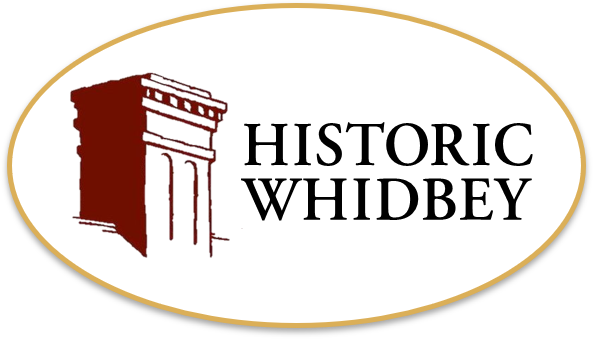Colonel Granville Owen Haller
Washington Territory
The Oregon Treaty of 1846 between the United States and Great Britain opened the floodgates to American settlement, especially north of the Columbia River. The U.S. Army soon arrived and among them was Major Granville Haller, already a seasoned veteran of the Seminole Wars and the Mexican-American War when he and his family arrived at Fort Dalles, Oregon Territory in 1853.
Haller was a career military man from York, Pennsylvania, whose broad and tumultuous career took him all over the young nation during the era of Manifest Destiny - the belief that the expansion of the American Republic from coast to coast was the fulfillment of the will of divine Providence.
Granville Haller was most definitely a man of his times, and it was in this spirit that he chose to serve his country. In the 1850s, the Pacific Northwest was not just Indian territory, but Hudson Bay Company trading territory as well, so opportunities for conflict with American settlers were plentiful. Thus, the mission of the U.S. Army in the Northwest was to protect pioneers on the Oregon Trail from both Indians and Englishmen; but it was also to protect the Indians and Englishmen from the pioneers.
From Fort Dalles on the Columbia River, Haller engaged in three campaigns in pursuit of justice amongst or against native peoples in response to the deaths of settlers and immigrants. The last of these in 1855 did not end well for him, as his 102 men met a unified force of Yakama, Klickitat and Cayuse warriors that eventually ballooned to as many as 1500 before the soldiers beat a hasty retreat, losing five men and their howitzer. This event, sometimes called "Haller's Defeat," is usually considered the beginning of the Indian Wars in Washington in the 1850s.
Haller’s Defeat by Fred Oldfield, 1966 - Acrylic painting on cavas depicting the Yakima Indians battling Col. Granville O. Haller and his soldiers at Union Gap near today's Yakima, WA.
The Army's attention to unrest east of the mountains was soon divided by threats of hostile Northwest Coastal peoples from as far away as Alaska. With the settlers of Puget Sound sandwiched between the two threats, Major Haller was sent to the west side of the Cascades to site, construct and command Fort Townsend, just south of Port Townsend. His I Company, 4th Infantry was first to respond when prominent citizen/politician Isaac Ebey was murdered by Northern Indians in 1857. Later, in 1859, they patrolled the waters of San Juan Island on the USS Massachusetts during the "Pig War" border dispute with Great Britain.
Civil War
When the Civil War broke out in 1861, regular Army officers in the Northwest were forced to choose sides and return to the east. Major Haller was a strong Democrat with little regard for the new Republican president Abraham Lincoln. Yet he was committed to the Union, and served as commandant of the Headquarters Guard of McClellan's Army of the Potomac. In 1863, as a native son of southeastern Pennsylvania, Haller was assigned to lead a local citizen militia of 350 men around York. In an attempt to delay a Confederate force of 6,000 men under Gen. Jubal Early during the Gettysburg campaign, Haller's men set fire to the Susquehanna River Bridge, preventing Early's army from marching on the state capital of Harrisburg, and possibly on to Philadelphia.
Despite his success, Haller's Democratic sympathies and his friendship with Gen. George McClellan proved his career downfall. Soon after Gettysburg, he was summarily dismissed from the Army for alleged disloyalty - making a toast unflattering to Lincoln - with no hearing, court martial or avenue for redress.
Coupeville
With no opportunity to refute the allegations, the Hallers returned to Whidbey Island on Puget Sound as civilians by the end of 1863. As a merchant, money-lender and land investor, Haller helped build the young community of Coupeville, serving as its postmaster, as Island County Treasurer, and as a founder of Masonic Lodge #15. Meanwhile, for 16 years, he lobbied for a court-martial where he might regain his good name and standing in the Army.
Seattle
In 1879 Haller was finally successful in his quest; he was exonerated and reinstated to the army with the rank of Colonel. He ultimately retired from the military to an 18-room mansion on First Hill in Seattle, from which he continued his business enterprises. But ever the officer, he briefly came out of retirement to serve as commander of the Seattle Home Guard - a militia unit formed to maintain martial law in Seattle during the anti-Chinese riots of 1886. He died in 1897 in Seattle.



